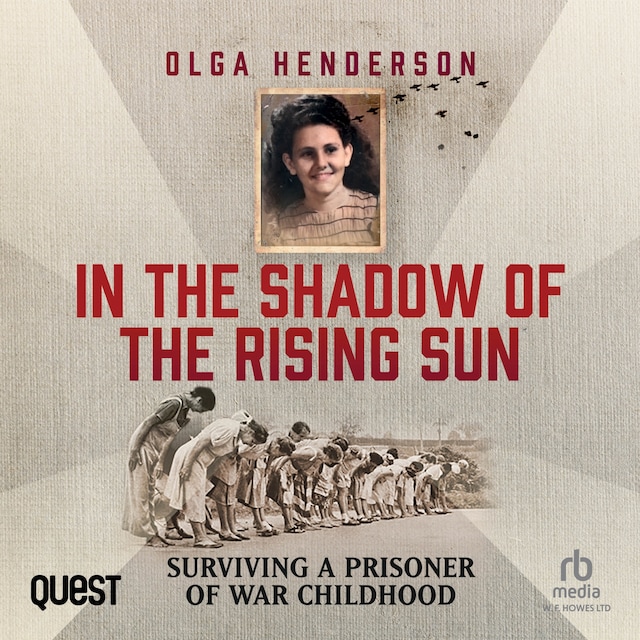
In the Shadow of the Rising Sun
Surviving a Prisoner of War Childhood
Description of book
In February 1942, nine-year-old Olga Morris and her family were in Singapore when the city fell to the Japanese Imperial Army in the biggest defeat in history of the British Forces. Turned back at an evacuation ship's gangway as the bombs fell, Olga and her parents and siblings were forced to take their chances and hide out until, captured by Japanese soldiers, they were sent on a forced march to the notorious Changi Prison.
There's a certain stereotype of the British in Singapore in the ‘30s and early ‘40s, which Olga Morris – Henderson as she is now – definitely did not fit. Her family was not part of the privileged Raffles Hotel set, with their big houses and servants. Her father worked in construction. Olga and her siblings grew up in Johor Bahru, a diverse part of Malaya just across the causeway from Singapore, amongst children of all faiths and cultures. It was a very happy upbringing.
All that changed in 1942. Olga was playing with her guinea pigs when a British Army officer arrived to tell her parents that the family had just 30 minutes to pack and be ready for evacuation to Singapore. The Japanese were ten miles away. Olga's mother grabbed the family photograph album and they ran…
Days later, Singapore fell. Three years of captivity followed. Three years of disease, malnutrition, deprivation and oppression in Changi and Sime Road.
Desperate for food, Olga and her friends bravely raided the vegetable plot; “dodging the searchlights” and sometimes endured severe punishments. She stood alongside the other women and children through the ordeal of Tenko in the blazing sun. Halfway through their captivity, Olga's ten-year-old brother was put into the men's camp, where he suffered terrible cruelty that scarred him for life.
February 2022 marked 80 years since the Fall of Singapore and Olga is now ready to tell the story of her years as a child prisoner of war. It's a story of great fear and deprivation; of a childhood utterly lost to conflict. It's also a story of class prejudice and unkindness that didn't end when Olga was freed from the camp and returned to England as a refugee.
Yet moments of humour and camaraderie also live on in Olga's memory. There were plays and imaginary tea parties and even a secret girl guide group that held clandestine meetings, where they worked on sewing a quilt.


